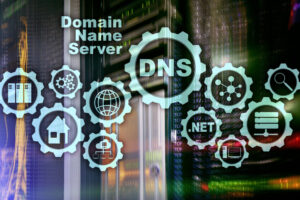Which DNS Server Are Best for Secure Browsing?
As you may already know, Domain Name System (DNS) servers are an integral part of the way that the Internet works. Simply put, a DNS server is responsible for converting domain names’ IP addresses so that browsers can connect to the right web pages. Using secure DNS servers is essential to keeping your data safe while browsing and ensuring that you’re connected to websites securely.
When it comes to secure browsing, there are a few different options for DNS servers available, each with its own advantages and disadvantages.
Security, Privacy, & DNS
While you may have used your ISP’s default DNS server for years without issue, you may want to rethink that practice as there are several potential issues with security and privacy.
While some of the metadata in DNS server requests is encrypted, most of the data isn’t. This is why you hear so much concern about using free public wifi in the airport, Starbucks, and elsewhere that an unscrupulous person can perform a man-in-the-middle (MITM) attack and eavesdrop on your connection and review your online activity or steal information.
That’s scary enough in and of itself but using your ISP’s DNS server can expose you to weaker security as well.
Cyberattacks that target DNS servers can be very damaging and even cause outages or downtime for websites connected to them. These attacks are known as DNS-centric cyberattacks, and they can include DNS cache poisoning, DDoS attacks, domain hijacking, and DNS tunneling.
DNS Cache Poisoning is one type of cyberattack which occurs when attackers use malicious code to change the contents of a DNS server’s cache, causing it to return malicious website information instead of the real data.
Another type of attack is Domain Hijacking, which is when an attacker takes control of a domain name by changing the registration information associated with it.
To protect yourself from these types of attacks, it’s important to use secure DNS servers that are regularly updated with the latest security patches and have strong built-in encryption protocols. Many companies offer paid solutions that provide an additional layer of protection for your online browsing activities.
The Best DNS Servers for Secure Browsing
Google Public DNS: Google’s public DNS server is one of the most popular options for secure browsing. It offers fast response times and is available for free. Google also has a reputation for providing enhanced security and privacy features, making it an excellent choice if you want to protect your data from prying eyes.
OpenDNS: OpenDNS is one of the oldest and most reliable DNS servers available. It’s often used by organizations that need to control network access, but it can be used by anyone for secure browsing. OpenDNS offers several layers of protection, including phishing and malware filters.
Cloudflare DNS: Cloudflare is one of the most popular companies offering DNS server services. It provides a high-performance DNS that’s optimized to ensure fast response times and security features. Cloudflare also has a strict no-logging policy that ensures your data is never stored.
Quad9 DNS: Quad9 is a free public DNS service that provides security and privacy features such as protection against known malicious websites. It also offers fast response times and is available in many countries around the world.
Norton ConnectSafe: Norton ConnectSafe is a free DNS service from Symantec that provides protection against malicious websites as well as phishing and malware filters. It’s available in three versions – basic, standard, and advanced – each with its own level of security features.
Comodo Secure DNS: Comodo Secure DNS is a free public DNS service that’s designed to be fast and secure. It also offers protection against phishing and malware, making it an excellent choice for secure browsing.
Ultimately, the best DNS server for secure browsing will depend on your specific needs and budget. Each of these options provides excellent security and privacy features, so it’s important to evaluate all the options before making a decision.


